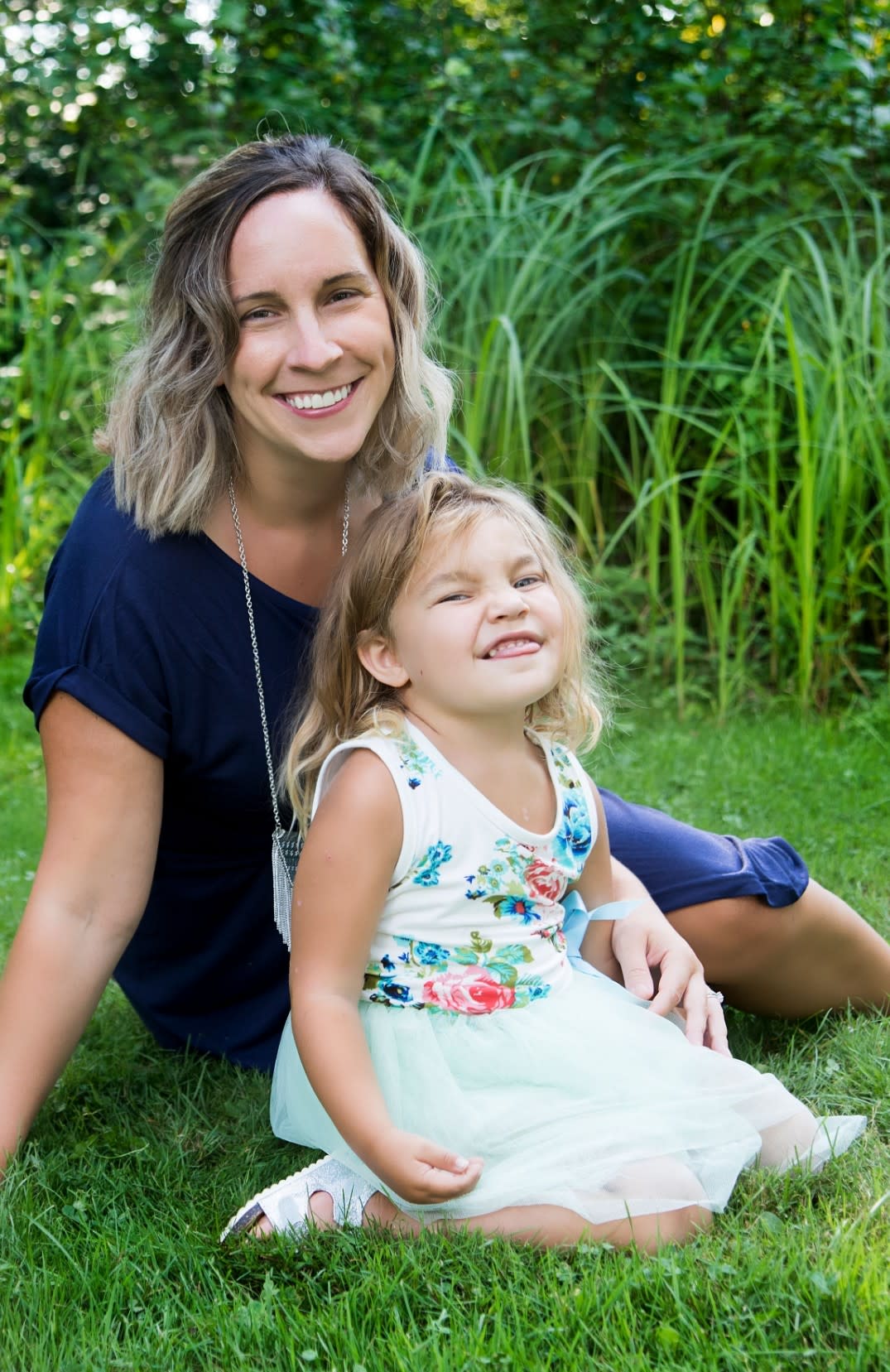
How to avoid hurtful words during interviews with special needs families
In TV news, a fair amount of stories we cover include people with disabilities. Their stories shed light on medical advancements, their spirits are uplifting, and most often, sharing their story with a local audience can help generate much-needed financial support.
But sometimes it’s tough when you know you need to address a medical condition in your story, but you just aren’t sure how to word it.
My approach to journalism…. Well, and life… has always been if you don’t know, just ask. I reached out to my friend Melanie Kretschmer to ask how a reporter can avoid saying something that could be ‘unintentionally hurtful’ during an interview. Melanie is a mom to two, including her 4-year-old daughter Naomi. Naomi has cerebral palsy and Melanie frequently and eloquently writes about their journey on Facebook.
Here's Melanie's own explanation with a little backstory:
After a relatively normal pregnancy, completely unknown to us, our daughter suffered a stroke sometime within the days before her birth. Naomi was born via emergency C-section, resuscitated and suffered a lengthy seizure, all before I even awoke from anesthesia. She suffered an ischemic stroke and acquired a diagnosis of Cerebral Palsy (amongst a laundry list of others). Cerebral palsy affects her daily life as well as ours, but more than anything, it empowers us to educate ourselves as well as others about Naomi and the millions of others who are living with disabilities in the world.
When learning about inclusion, the information we receive can be so variable that it is difficult to know where to start to be both respectful and inclusive, yet acknowledge someone’s differences. Even with knowing that, anyone can inflict a great deal of pain on someone just by the words they choose to use.
After Naomi was born with significant needs, well-intentioned friends, family members, even doctors would use the word “normal.” I would cringe each time.
Someone might say, “Your daughter is adorable. What a fighter – she is going to be normal, right?” The people who loved and cared for us were simply wondering: Would she have long-lasting effects from her stroke?
What would life look like for her?
Regardless of how loving and well-intentioned the statements were, they often hurt. Because the answer was, “No.” My daughter would not meet their version of “normal.”
When it comes to interacting with individuals who have disabilities or their families, I find it best to ask questions from the start. One of the biggest things I learned in our journey is that those around us each have a story that is unique to them. The words they like to use, the way, and to what depth they like to discuss things may vary considerably from person to person and family to family. I have found that starting a conversation with, “I have something I would like to ask regarding, “child.” Is that OK? I am going to do my best to be sensitive and ask it respectfully. Please correct me, if I am not.”
Such a simple statement has the ability to let those you are speaking with know not only the positivity of your intentions but truly show care and concern for how they may feel about you asking it. It also allows them the opportunity to educate you and share their preferred language or even the opportunity to say that they would rather not discuss the topic.
I would like to highlight that the above is simply my personal experience and interactions. I certainly cannot speak for all those living with, loving, or raising others with unique differences.
Even some of the language I used is not what all find to be appropriate. Many say the term “special needs” bothers them and prefer using terms such as “unique differences”. I like to use both interchangeably.
In order to compile a list of “Things to Never Say,” I reached out for feedback from a large support network I have of parents, professionals, grandparents, guardians, individuals and caretakers to compile a short list and/or advice to keep in your pocket when interacting with those different from yourself.
- He looks so normal. / He looks fine. / You would never know by looking at him.
- Is this something she will outgrow?
- Offers for treatment or things to “fix” the child.
(i.e., things you have seen on social media, google, exercises or things that worked for someone you know/heard of.)
- Ask if they prefer using person-first or diagnosis-first language. People first would be, “Child with cerebral palsy.” Diagnosis first would be, “CP kiddo.”
- Did you have a normal pregnancy? / Is it genetic?
- Assumptions that wheelchairs or braces mean there is something wrong with their legs. It is important to understand that most children in a wheelchair are there because of a brain injury or damage, cerebral palsy or genetic and muscular conditions. (Statement: “It makes their life seem like is comparable to a sports injury and I don’t like that.”)
- Did you know when you were pregnant? / Did you know it was possible before you got pregnant
Heather Poltrock
WSAW-TV, Wausau




